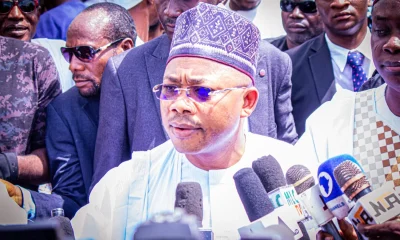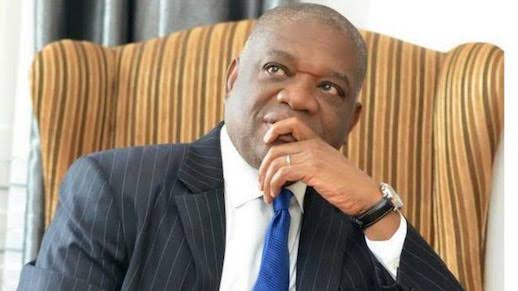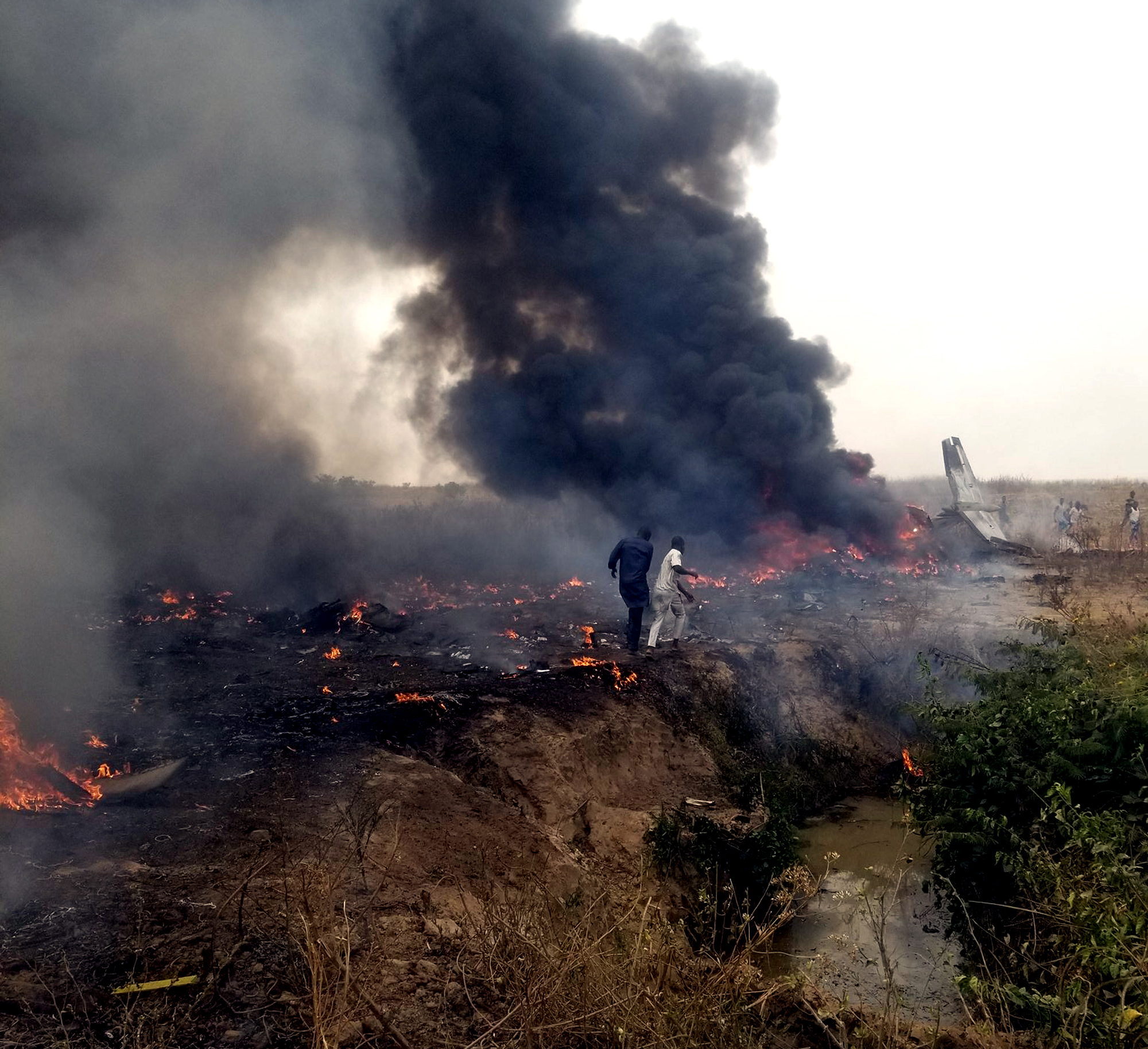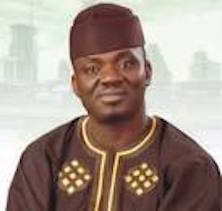COVER
Insecurity: North Must Convoke Regional Confab – Sani

From Jude Dangwam, Jos
Northern leaders have been charged to convoke a regional conference with a view to addressing the numerous problems facing the region in recent times.
Former Senator representing Kaduna Central Senatorial District, Shehu Sani, who gave the charge, said the Northern leaders should regard the problems as more important than the 2023 elections.
He said what should be paramount to every leader in the Northern part of the country, was the security of people and the unity of purpose, which the region was long known for considering the daily shedding of blood by terrorists and other criminal groups.
“Northern leaders and the people of the North need to set a conference of its own to look into the fault lines to address its problems and challenges.
The region must amend its house because the structure is staggering and is threatening the peace of the whole country,” he told newsmen at an interactive session in Jos, at the weekend.“The immediate importance is that of peace, security and unity. The Northern part of Nigeria today is evidently disunited. Divisive forces are in control of the affairs of the state. People in the North are more polarized along religious and ethnic sentiment than have ever been in the history of our country. People are ready to kill and die in the name of religion and ethnicity and are not ready to die in the name of their own country.
“Political Leaders who are exploiting the sensibility and sensitivity of our people in order to re-enforce their political fortresses or stabilize their political thrust must be resisted. That is the fact, because our people are dying, our people are being killed every day, but we need to stand up and fight these divisive forces for the unity, peace and for the future of our country,” he passionately stated.
“National unity is not all about coat of arms, is not all about National Flag, Green-white-Green, it’s also not about National Anthem, but is about peace, justice, equity, fairness and proportional representation.
“If you alienate a certain sections of Nigerians or marginalised them, you are only planting the seed of disharmony”, he said.
Commenting on the withdrawal of invitation earlier sent to Kaduna state Governor, Mallam Nasiru El-Rufai as a guest speaker at Nigerian Bar Association conference, Sani said: “The lawyers have a constitutional right to do that, those lawyers, who wrote the petition clearly states their positions which are very fundamental and constitutional. He can be on any other platforms if invited, but not this one because they made their position clear.”
On the issue of 2023 presidency, the ex- lawmaker said as a democrat, who strongly believes in rotation of power, for the interest of Justice, equity and fairness, power should move to the Southern region”
“It is not healthy for a nation, where some people feel they have the population and as such, will decide when to leave power”, he said.
NCPC Plans Peace Summit for Kaduna South
The Nigeria Christian Pilgrim Commission (NCPC) has concluded plans to convene a three-day peace meeting next month to seek lasting solutions to the crisis in Southern Kaduna.
Executive Secretary of the Commission, Rev Yakubu Pam, disclosed this in Kaduna during a condolence visit to the Southern Kaduna Peoples Union at Barnawa, Kaduna state.
In a statement by Head of Media, Celestine Toruka, the NCPC Boss said he was at the Secretariat of the Union to pay a condolence visit on the loss of lives of innocent people of Southern Kaduna, following the recent crisis that erupted in the area. He called on both the Federal and state governments to ensure that the perpetrators of the heinous crimes in Southern Kaduna were brought to justice.
Rev Pam noted role of the Union, which he said had been the voice of the people adding, Southern Kaduna people were receptive, accommodating and friendly to visitors in their communities.
The Executive Secretary described the current situation in Southern Kaduna as the handiwork of the enemy and promised consult the relevant authorities to fish out those behind the killings.
He cautioned all stakeholders to be circumspect with their utterances so as not to escalate the fragile situation in Southern Kaduna.
President of the Union, Hon. Jonathan Asake, who received the Executive Secretary described him as ” a messenger of peace “, and also congratulated him on his recent appointment as the Executive Secretary of the NCPC.
”We are not in anyway surprised that you have continued in what you know how to do best”, Akase stated.
”We in Southern Kaduna have tried to tell the world that what is going on is genocide and ethnic cleansing and that the actions and inactions of our leaders and utterances are not helping matters,” he stressed.
The NCPC Chief Executive also met with the Southern Kaduna Elders led by Major General Zamani Lekwot (rtd) in his residence in Kaduna to brief him on his mission.
In his remarks at the meeting, Rev Pam described the Southern Kaduna as a mini Nigeria, where people hitherto lived in peace and harmony until the recent crisis.
The current situation in the area, he said was a painful experience for the people.
“The questions in the mouth of every Nigerian is when will this crisis end?” he querried and tasked the Southern Kaduna elders to forgive their enemies, while promising to do his best to raise the level of intelligence so that those who come to the communities in the night to kill innocent and harmless people would be stopped. He equally called on the Southern Kaduna youth to ceasefire in order to chart a new course, adding that the elders had a big responsibility to ensure that the younger ones did not take laws into their hands. Major General Lekwot congratulated Rev Pam on his appointment, adding that “NCPC is a platform that unites all faithful, going on pilgrimage is the dream of every believer”.
He commended Executive Secretary for the visit to commiserate with the people.
Lekwot charged people in authority to ensure that the root causes of the problem were addressed in order to create a conducive atmosphere for peace to reign.
“Nigeria is not a banana republic and the rule of the law must be enforced” he said adding, “we want the bandits to live us alone so that life will return to normal” he said.
Rev. Pam was also at the Southern Kaduna Development Association Forum where he met with their Chairman, Dr Zuwaghu Bonat and other leaders of the association.
He condoled with them on the loss of the innocent lives of the people of Southern Kaduna and tasked them on the need for a ceasefire in the hostilities.
COVER
Aliko Dangote Steps Down as Chair of Dangote Sugar

Africa’s richest man, Aliko Dangote has stepped down as Chairman of the Board of Dangote Sugar Refinery Plc, marking the end of a two-decade leadership that transformed the company into a dominant force in Nigeria’s sugar industry.According to a corporate disclosure on Wednesday by the company’s Secretary, Temitope Hassan, Dangote’s retirement from the sugar company’s board takes effect from June 16, 2025Africa’s richest man, Aliko Dangote has stepped down as Chairman of the Board of Dangote Sugar Refinery Plc, marking the end of a two-decade leadership that transformed the company into a dominant force in Nigeria’s sugar industry.
Dangote has chaired the board since 2005, overseeing its significant growth and transformation, including major expansion projects and implementing best practices in corporate governance.“In line with the principles of good corporate governance and succession planning, Dangote Sugar Refinery Plc hereby announces the retirement of our esteemed Chairman of the Board of Directors, Alhaji Aliko Dangote, effective June 16, 2025,” the statement said.Under his leadership, the company launched key Backward Integration Projects (BIP) in Adamawa, Taraba, and Nasarawa States to boost local sugar production and reduce Nigeria’s reliance on imports.Following a “rigorous selection and transition process,” the Board has appointed Mr. Arnold Ekpe, an Independent Non-Executive Director and former Group CEO of Ecobank, as the new chairman.We are pleased to announce the appointment of Mr. Arnold Ekpe as the new Chairman of Dangote Sugar Refinery Plc, effective June 16, 2025,” the statement added.Ekpe brings decades of experience in banking and corporate governance, with a strong track record in leading multinational institutions across Africa.The Board thanked Dangote for his exemplary leadership and unwavering commitment to the company’s vision.“We welcome Mr. Ekpe to his new role and look forward to the next chapter in our company’s journey under his leadership. We also express our deep appreciation to Alhaji Aliko Dangote for his years of outstanding service,” the statement stated. (NAN)COVER
Police Arrests 42 Armed Bandits, Remands 10 Herders over Benue Killings

From Attah Ede, Makurdi
The Benue State Police Command said it has arrested 42 local armed bandits and herders across some communities in the state.The Commissioner of Police in the State, Ifeanyi Emenari, who disclosed this during his maiden media briefing held at the police officer mess Makurdi explained that those arrested were suspected to have been involved in the incessant killings going on in the state.
He pointed out that the armed Fulani herdsmen and bandits will face full trial. According to Police Commissioner Emenari, most of the suspects were arrested upon his assumption of duty in the last one month.He maintained that the command had taken the fight to those responsible for the attacks and killings in Benue communities, stressing that tactical teams have already been drafted to flashpoints across communities in the state.”I was posted to Benue State on the 24/04/2025 and assumed duty on the 26 April 2025. Upon assumption of duty, I step up strategic plans to tackle insecurity in the state.”I visited crisis areas such as Ankpali in Apa, Naka in Gwer West, Ayilamo in Logo, Amafu in Katsina-Ala, Ukum, Agatu, Udei, Yogbo in Guma Local Government Areas, and many others. I had discovered that farmlands have no farmers. Therefore, we have deployed our tactical teams to the areas and are now combing the communities in search of the killers.”We have a mandate to ensure that these communities are safe for the people to go back to their homes and engage in farming activities.”And in the last one month we have arrested 42 armed herdsmen and local bandits from these communities. Most of them have been charged to court.”We also have about 10 herdsmen who have been remanded by the courts in the course of their trial.”Apart from those already charged to court, there are others who are still being investigated and they would be charged to court at the end of investigations.””The command also recovered two AK47 rifles and 21 locally made firearms from the suspects. We had taken the fight to cult gangs in the state “that is why we have not witnessed or recorded cult related attacks in the state in the last one month since I assumed office.The kidnap incidents that happen regularly along Makurdi – Lafia federal highway have reduced drastically as we have arrested those perpetrating the acts and are currently in jail.”We have designed a plan to respond to any distress call within 30mns depending on the locations within the state”, Emenari added.The CP assured that the command would ensure that peace and security is restored to every nook and cranny of the state.He appealed to Benue people particularly in the rural communities and urban centres to cooperate with the police in its task of ensuring the security of lives and property in the state.He commended Governor Hyacinth Alia for his support to the Command, maintaining that his desire to ensure peace and security in the state would be achieved.”The entire governor wanted to make sure farmers go back to their farms and people are provided with adequate security to enable them to go on with their lawful business. We are ready to achieve that with the governor support”, he saidSimilarly, the Benue State Governor, Fr. Hyacinth Alia has reiterated that some politicians and “Religious bandits” are responsible for the needless crisis and aiding the killings of innocent people in the State.The Governor stated this while addressing the Pro-Tinibu group who staged a rally at the Government House Roundabout Makurdi, the state capital as part of the activities marking this year’s June 12 Democracy Day celebration.According to the Governor, “The Religious Bandits are the ones fuelling the insecurity situation being experiencing in the state.”They are doing this through their consistent rhetoric of unverified comments and distortion of facts.”There are some religious leaders I call ‘religious bandits’ who are fueling the bad situation we are experiencing here. And how do they support that, by their rhetoric. If you do not have the facts about Benue and Nigeria, shut up. Don’t just say something because you have the holy altar and oil to speak. Speak what you know and what can be verified.”There are some leaders who are fanning the embers of discord that peace should not return to the State.”We are still faced with insecurity as our people are killed unprovoked. We will take out this total menace and carnage of killings. We will not rest on our oars to ensure that total peace returns to Benue especially in the 6 LGAs that are in the frontline of insecurity.”Am confident that with the support of the President, we are going to get rid of insecurity completely in the State. Some traditional and religious leaders are also marching and fighting with us for peace to return to the State. Our people are suffering a lot and for some of us we have taken an oath to defend them and bring back peace”.”The day calls for sober reflection of how far the state and nation has journeyed in 26 years of uninterrupted democratic government, adding “We must pay tribute to the heroes who fought for democracy and sacrificed their lives for the unity of the country”Those heroes some are with us, others have gone to be with the Lord. They went through a lot including imprisonment, sacrificing for the unity of our country. It is not yet over for us. As we celebrate this day, people of conscience should note that what unites us is greater than what divides us. So, we must think positively for the State and the nation. We should have faith and hope for the nation.”Let us have a change of attitude and a different way of thinking. Let us sacrifice for the state and nation some more. Bring solutions to us and stop putting kerosene on fire. Let us know that Nigeria is our country and we can’t have another one.”Let us be our brother’s keeper. To the youths, a new Benue is possible and you are the new Benue. Let us do our best to ensure that Benue State is for prosperity and is secured. I am with the masses because they are with the people”, he stated.COVER
CBEX Remains Banned in Nigeria, SEC Warns Investors

By Tony Obiechina, Abuja
The Securities and Exchange Commission (SEC) is insisting that CBEX (Crypto Bridge Exchange), operating under the corporate identity of ST Technologies International Ltd, also known as Smart Treasure/Super Technology, remains banned in Nigeria as it has not been registered by the Commission.
SEC in a statement yesterday advised the public to refrain from patronising or transacting any investment related business with the CBEX. The notice read: “The attention of the Securities and Exchange Commission has been drawn to media reports indicating that CBEX (Crypto Bridge Exchange), operating under the corporate identity of ST Technologies International Ltd, also known as Smart Treasure/Super Technology, has resumed operations across Nigeria.“According to the reports, CBEX promoters are demanding $200 from their subscribers with balances above $1,000, and $100 from those with less than $1000 balances before withdrawals can be processed”.The Commission stated “unequivocally that neither CBEX nor ST Technologies International Ltd (or Smart Treasure/Super Technology) is registered with the Commission or authorized to offer investment related services to the Nigerian public.“As a matter of fact, enforcement action has already been initiated against CBEX and its promoters following its previous unauthorized investment activities and the Commission is collaborating with relevant Law Enforcement Agencies to properly investigate CBEX/ST Technologies International Ltd and will take appropriate actions in line with the provisions of the Investments and Securities Act 2025.“The Nigerian public is accordingly advised to refrain from patronising or transacting with CBEX /ST Technologies International Ltd (Smart Treasure or Super Technology) as they risk losing their funds”.The SEC advised investors to verify the registration status of Investment platforms via the Commission’s dedicated portal: www.sec.gov.ng/cmos before transacting, adding that it remains committed to protecting investors and maintaining market integrity.


























